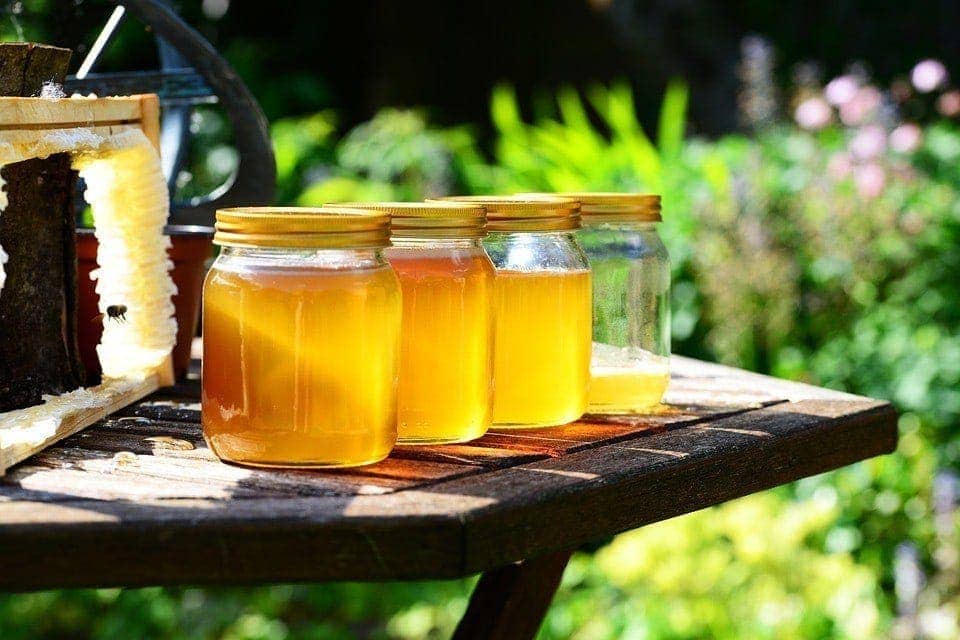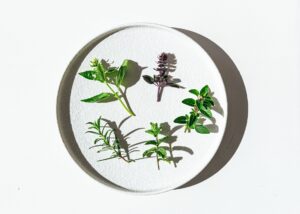Honey is considered a healthy, natural alternative to table sugar. However, if you take a closer look, you quickly realize that the myth that honey is a healthy alternative to table sugar can be quickly exposed.
Vitamins and minerals are only contained in tiny amounts and are irrelevant for meeting daily needs.
Honey consists of almost 80% simple sugars, 17% water and 3% proteins.
Honey is just as harmful as refined industrial sugar. Honey is just as acidic as refined industrial sugar. Honey therefore has the same acidifying effect as table sugar. If a health advisor recommends honey instead of white sugar, you will immediately recognize their phonograph knowledge.
Since honey, like sugar, consists of fructose and glucose, both types of sugar enter the blood very quickly. The rapid absorption of these sugars causes a steep rise and then a sharp drop in blood sugar. Such fluctuations in blood sugar not only cause tiredness and difficulty concentrating, but also result in food cravings and thus lead to even more sugar consumption, along with all the harmful consequences for our health.
Fructose may sound natural, but if consumed regularly it can cause considerable damage to the body because, like all simple sugars, it is highly yin acid-forming and is converted directly into fat.
As part of the cosmic order, humankind is also dependent on bees, as they are responsible for the fertilization of the plants that nourish humans as well as the animal world.
We should not assume that bees produce their honey for human pleasure. Rather, the cosmic order lets us see that they produce honey for their nourishment and reproduction; it serves them as food for the season when there is no honey juice to harvest. If a person believes he is allowed to take a little of this honey, he should therefore not “harvest” it in August, September or October, but after winter, when the bees can already find the first flowers again. If these conditions were observed, the amount of honey that the humans on this earth could share would obviously be very small.
Honey is produced when the nectar is transformed in the crop of the bee by the digestive juices.
It is an enzymatic transformation, the result of which is honey that has the following composition:
- 75 to 80% sugar in the form of glucose, fructose and a little sucrose
- organic acids such as acetic acid, which has an antiseptic effect, and enzymes such as invertin
- Basic components of nitrogen compounds that contain 0.3% proteins and traces of fats
- fragrance and color components
- on 100 g each 1 mg of vitamin C and
- up to 0.3 mg vitamins of the B complex
- the following minerals and trace elements per 100 g honey:
7.00 mg sodium,
51.00 mg potassium,
2.00 mg magnesium,
0.03 mg manganese,
0.50 mg iron,
0.20 mg copper,
6.00 mg phosphorus,
29.00 mg chlorine.
All these elements, which are negligibly small anyway, can be obtained from other sources that are much more interesting than honey. Especially not from sources that over-acidify the body.
There are also instances of poisoning caused by honey, such as when the bees collect from certain azaleas, or from rhododendrons, oleanders, bay trees or palm trees.
The poison that is then deposited, the so-called andromedotoxin, shows the following symptoms: nausea, diarrhea, dizziness, headache, visual disturbances, fever, feeling drunk and sometimes cramps, gastrointestinal complaints; generally these symptoms last for about 24 hours.
Honey often contains chemical pesticides in concentrated form that are used in agriculture and can cause poisoning.
On the subject of desserts and other sweet treats, be they based on sugar, honey, maple syrup, fructose and other monosaccharides: you should stay away from them. You can remove these products from your kitchen cabinet without remorse. There are better sources for sweetening desserts. The same goes for all products that contain hidden sugars.
To summarize:
from a physiological point of view: In its effect, sugar is very Yin (expanding), needs base-forming, and creates an increased “robbery” of base-forming minerals. It also has a strong expanding effect on organs such as the heart (the heart is a Yang organ).
from a psychological point of view: Sugar causes, among other things, depression, fear, loss of trust in the natural order, and lock in its “snail shell” – which are all psychological yang results through physical yin generation.
Statement: “But I don’t eat honey for pleasure, I eat 1 spoon a day to strengthen my immune system.”
Answer: “If you think that simple sugars (also called honey), which is highly yin acid-forming, strengthens your immune system, then you should think again – whether simple sugars (also called honey) are really the product of your choice – to strengthen your immune system. “
Why is honey acidic?
Because honey consists of 80% simple sugars, and simple sugars are acid-forming because of their high number of positively charged ions.







